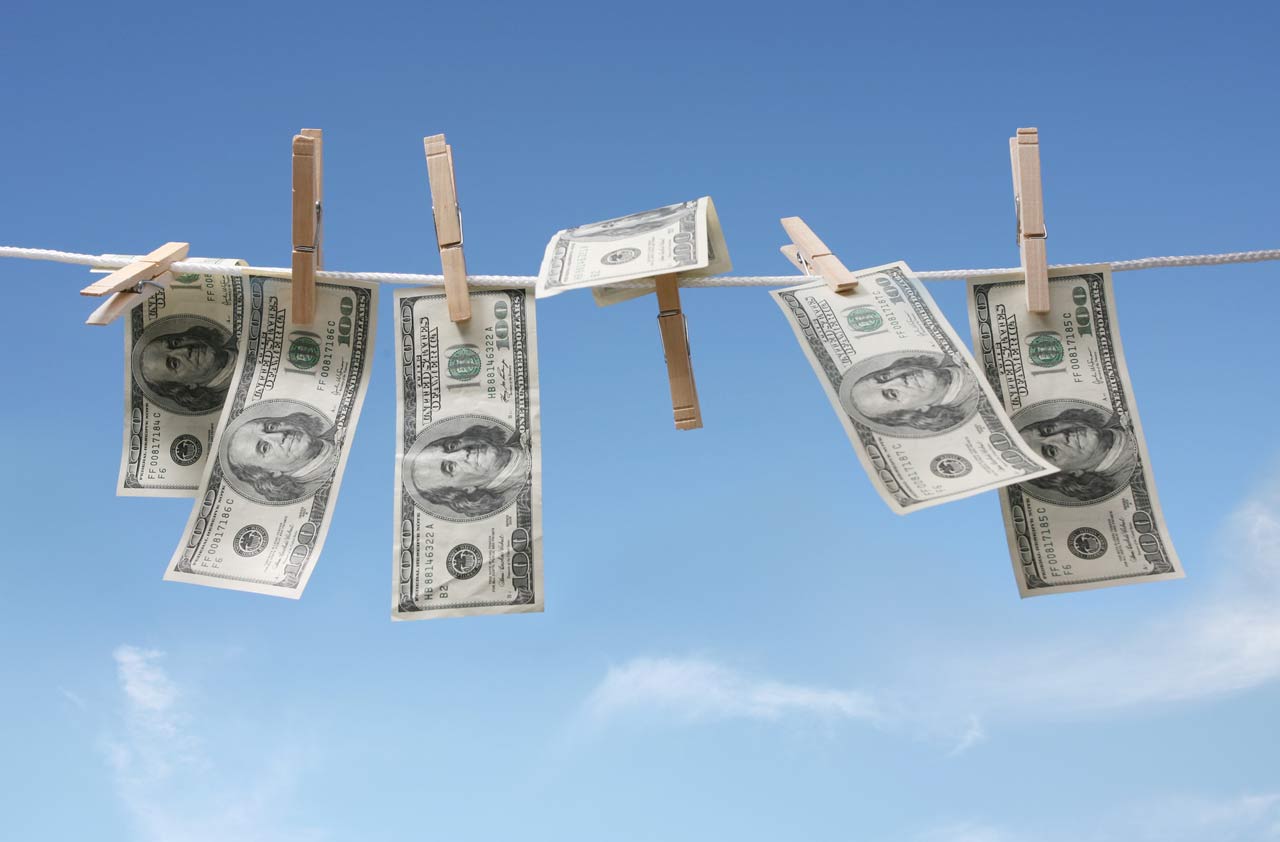5 Ways to Increase Retirement Income in a Low-Yield World
Squeezing more income out of your assets is always a good thing for retirees.


Profit and prosper with the best of Kiplinger's advice on investing, taxes, retirement, personal finance and much more. Delivered daily. Enter your email in the box and click Sign Me Up.
You are now subscribed
Your newsletter sign-up was successful
Want to add more newsletters?

Delivered daily
Kiplinger Today
Profit and prosper with the best of Kiplinger's advice on investing, taxes, retirement, personal finance and much more delivered daily. Smart money moves start here.

Sent five days a week
Kiplinger A Step Ahead
Get practical help to make better financial decisions in your everyday life, from spending to savings on top deals.

Delivered daily
Kiplinger Closing Bell
Get today's biggest financial and investing headlines delivered to your inbox every day the U.S. stock market is open.

Sent twice a week
Kiplinger Adviser Intel
Financial pros across the country share best practices and fresh tactics to preserve and grow your wealth.

Delivered weekly
Kiplinger Tax Tips
Trim your federal and state tax bills with practical tax-planning and tax-cutting strategies.

Sent twice a week
Kiplinger Retirement Tips
Your twice-a-week guide to planning and enjoying a financially secure and richly rewarding retirement

Sent bimonthly.
Kiplinger Adviser Angle
Insights for advisers, wealth managers and other financial professionals.

Sent twice a week
Kiplinger Investing Weekly
Your twice-a-week roundup of promising stocks, funds, companies and industries you should consider, ones you should avoid, and why.

Sent weekly for six weeks
Kiplinger Invest for Retirement
Your step-by-step six-part series on how to invest for retirement, from devising a successful strategy to exactly which investments to choose.
Many retirees who worked hard and saved diligently only to reach retirement in a low-income-rate environment have recently found the income they need to live off may be less than they had expected. Fortunately, there are still opportunities for pre-retirees and retirees to increase retirement income in today's low-yield world.
Until recently, experts suggested that pre-retirees should use just 4% of their retirement account during their first year of retirement and that the account’s later use would be dependent upon the inflation rate. However, it has become clear that this 4% rule is flawed.
The 4% rule was established in the 1990s when bond interest rates were considerably higher than they are now. The rule also assumed that retirees had balanced portfolios, which was not always the case. Lower interest rates have since dropped further, leaving many reliant pre-retirees scrambling for additional income.
From just $107.88 $24.99 for Kiplinger Personal Finance
Become a smarter, better informed investor. Subscribe from just $107.88 $24.99, plus get up to 4 Special Issues

Sign up for Kiplinger’s Free Newsletters
Profit and prosper with the best of expert advice on investing, taxes, retirement, personal finance and more - straight to your e-mail.
Profit and prosper with the best of expert advice - straight to your e-mail.
Read along to learn about five key ways to increase retirement income in a low-yield world.
Make the Most of Your Cash Holdings with Money Market Accounts
Saving for retirement means building a financial plan that will increase your after-tax dollars. Your plan should also be flexible enough to let you withdraw money in case of any unexpected events or life changes, which often involves an allocation to cash for safety and security. Money market accounts allow account owners to access their funds within 24 hours.
You can make the most of your cash holdings by placing assets into a money market or a money purchase fund rather than keeping them in the custodian’s cash account. Placing your assets into a money market or a money purchase fund generates additional return while maintaining liquidity in your brokerage account. For example, as of Sept. 30, the Crane Brokerage Sweep index had an annualized return of 0.2% on cash holdings, while the Crane 100 Money Fund Index had an annualized return of 1.8% or nine times more.
A trusted financial adviser will be able to help you select the best money market or money purchase funds for you to make the most of your cash holdings.
Take Advantage of Dividends and Stocks Over Bonds
In today’s market, you can increase retirement funds and profit more if you shift income sources from bonds to stocks. Ten-year Treasury note yields settled at 1.68% on Sept. 30 while the dividend yield on the S&P 500 was around 1.97%. Additionally, many large, quality companies possess dividends that are higher than their bond rates.
Although the 1.97% yield is nowhere near the 5%, 10% or 15% interest rates that were available years ago, today’s rates are higher on stocks than bonds. The higher interest rates from years ago enabled people to retire comfortably with only bonds and CDs. Today it is critical to be selective and align investments that allow you to take advantage of dividends. Although the difference in interest may seem small, stocks tend to grow their dividends with inflation and company growth, while bond payments, on the other hand, are fixed and qualified dividends can have more favorable tax treatment than other forms of income.
Maximize Social Security Benefits
The Social Security Administration allows you to start receiving benefits anytime from age 62 to age 70. There are several factors that affect when exactly you might want to start receiving benefits, including your earnings history, marital status, predicted retirement age and amount of assets.
The Social Security Quick Calculator is a great tool to explore what age you might want to start receiving Social Security benefits. The tool takes information like your date of birth, current earnings and future retirement date to present a view of your benefit estimate in today’s dollars or in inflated (future) dollars.
You can play around with the options to understand how your benefits change based on what age you elect to receive Social Security benefits. For example, although you are entitled to receive Social Security benefits at 62, your benefit will be reduced for the rest of your retirement if you choose to take them before your full retirement age. Therefore, it may make more sense to wait until you’ve reached your full retirement age (which is dependent on your date of birth) when you are eligible to receive full benefits.
You may even earn a credit if you delay receiving Social Security benefits between your full retirement age and 70 years old. It is important to consider factors that are unique to your situation, like your cash needs.
You should also take advantage of software programs that are designed to present useful information like your assets’ growth rates to help decide on short- and long-term financial decisions to maximize your Social Security benefit.
Deciding when to receive Social Security benefits is complex and differs from person-to-person. A trusted financial adviser is a great resource to help you determine the best time to draw on your benefits. A financial adviser can also help you understand your assets’ growth rates combined with your Social Security to guide you to make sound financial decisions.
Add Passive Real Estate Exposure to Your Portfolio
Owning a rental property (active real estate exposure) often means that you have to respond to calls at very inconvenient hours. Investing in real estate investment trusts (REITs) replaces all of the hassles of owning real estate while still reaping the rewards. REITs often pay a yield of 5%-7% and can be held in your brokerage account.
If you already own property, you can utilize services from a local management firm that will invest in real estate and send monthly or quarterly checks for a reasonable fee. Working with a local management firm lets you receive income from your property while also investing in other real estate. Your financial adviser can help you find the best local firm that will pay you to own your properties. Speaking with a tax professional about how to obtain benefits will also help simplify the process.
Develop a Financial Plan that Accounts For Withdrawal Sequencing
Retirees often have multiple assets and accounts (e.g., Roth IRA, multiple taxable accounts, assets, etc.), which can make for more complicated financial decisions. Typically retirees who fall into this category withdraw assets from accounts with lower tax exposure first to encourage their funds to compound and potentially last two or three years longer. Ultimately, the goal is to avoid placing yourself in a higher tax bracket.
Deciding which account to draw on first depends on a person’s individual needs. A financial adviser can help you determine which fund to draw on first and can open opportunities to profit from after-tax dollars.
The Bottom Line
You have worked hard for your money up until now. Wouldn’t it be nice to squeeze a little more income from it? In today’s low-yield world, you can increase your retirement funds, ensure a steady income after you retire and overall prevent mistakes throughout retirement so you can spend your hard-earned profits. It is wise to work with an experienced and trusted financial adviser who can help you make the best financial decisions based on your unique future goals and needs.
Profit and prosper with the best of Kiplinger's advice on investing, taxes, retirement, personal finance and much more. Delivered daily. Enter your email in the box and click Sign Me Up.

Kevin Barlow, CFA®, is managing director of Miracle Mile Advisors, and has over 13 years of professional experience in financial services working with high-net-worth individuals and families on customized investment solutions.
-
 Nasdaq Leads a Rocky Risk-On Rally: Stock Market Today
Nasdaq Leads a Rocky Risk-On Rally: Stock Market TodayAnother worrying bout of late-session weakness couldn't take down the main equity indexes on Wednesday.
-
 Quiz: Do You Know How to Avoid the "Medigap Trap?"
Quiz: Do You Know How to Avoid the "Medigap Trap?"Quiz Test your basic knowledge of the "Medigap Trap" in our quick quiz.
-
 5 Top Tax-Efficient Mutual Funds for Smarter Investing
5 Top Tax-Efficient Mutual Funds for Smarter InvestingMutual funds are many things, but "tax-friendly" usually isn't one of them. These are the exceptions.
-
 Social Security Break-Even Math Is Helpful, But Don't Let It Dictate When You'll File
Social Security Break-Even Math Is Helpful, But Don't Let It Dictate When You'll FileYour Social Security break-even age tells you how long you'd need to live for delaying to pay off, but shouldn't be the sole basis for deciding when to claim.
-
 I'm an Opportunity Zone Pro: This Is How to Deliver Roth-Like Tax-Free Growth (Without Contribution Limits)
I'm an Opportunity Zone Pro: This Is How to Deliver Roth-Like Tax-Free Growth (Without Contribution Limits)Investors who combine Roth IRAs, the gold standard of tax-free savings, with qualified opportunity funds could enjoy decades of tax-free growth.
-
 One of the Most Powerful Wealth-Building Moves a Woman Can Make: A Midcareer Pivot
One of the Most Powerful Wealth-Building Moves a Woman Can Make: A Midcareer PivotIf it feels like you can't sustain what you're doing for the next 20 years, it's time for an honest look at what's draining you and what energizes you.
-
 I'm a Wealth Adviser Obsessed With Mahjong: Here Are 8 Ways It Can Teach Us How to Manage Our Money
I'm a Wealth Adviser Obsessed With Mahjong: Here Are 8 Ways It Can Teach Us How to Manage Our MoneyThis increasingly popular Chinese game can teach us not only how to help manage our money but also how important it is to connect with other people.
-
 Looking for a Financial Book That Won't Put Your Young Adult to Sleep? This One Makes 'Cents'
Looking for a Financial Book That Won't Put Your Young Adult to Sleep? This One Makes 'Cents'"Wealth Your Way" by Cosmo DeStefano offers a highly accessible guide for young adults and their parents on building wealth through simple, consistent habits.
-
 Global Uncertainty Has Investors Running Scared: This Is How Advisers Can Reassure Them
Global Uncertainty Has Investors Running Scared: This Is How Advisers Can Reassure ThemHow can advisers reassure clients nervous about their plans in an increasingly complex and rapidly changing world? This conversational framework provides the key.
-
 I'm a Real Estate Investing Pro: This Is How to Use 1031 Exchanges to Scale Up Your Real Estate Empire
I'm a Real Estate Investing Pro: This Is How to Use 1031 Exchanges to Scale Up Your Real Estate EmpireSmall rental properties can be excellent investments, but you can use 1031 exchanges to transition to commercial real estate for bigger wealth-building.
-
 Should You Jump on the Roth Conversion Bandwagon? A Financial Adviser Weighs In
Should You Jump on the Roth Conversion Bandwagon? A Financial Adviser Weighs InRoth conversions are all the rage, but what works well for one household can cause financial strain for another. This is what you should consider before moving ahead.